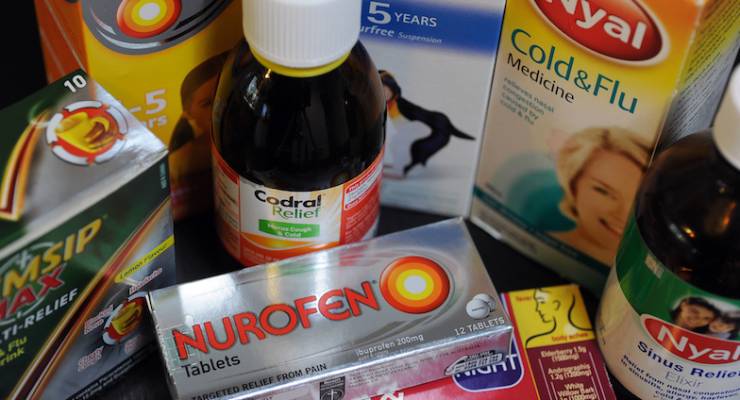
If the virus doesn’t get you, the Nurofen will. At least, that’s the impression given after the French health minister Olivier Véran tweeted:
Taking anti-inflammatory drugs (ibuprofen, cortisone…) could be an aggravating factor of the infection. If you have a fever, take paracetamol…
That was several weeks ago. Since then, experts around the world rushed to reassure people that the important word in this statement was “could”.
RB Health, the makers of Nurofen, was understandably more emphatic, stating “there is no proven scientific evidence linking the use of ibuprofen to the aggravation of COVID-19”.
It cited a tweet by the World Health Organisation that said it was not aware “of reports of any negative effects of ibuprofen” among doctors treating COVID-19 patients. As of March 19, the WHO was monitoring the situation by consulting to doctors about it.
Without going into complex details of physiology and pharmacology, it is true that there are theoretical reasons why anti-inflammatories could (that word again) be unhelpful.
But there’s very little evidence that they are. So, let’s move on.
So, if we get a respiratory illness, how should we treat the symptoms? Here’s the best evidence-based advice that I know:
How should I treat a fever?
A measured body temperature of over 37.5 degrees is the usual definition of fever. Treatment with antipyretics like paracetamol will bring fever down, but not completely.
However, fever is part of the body’s defence mechanism. We don’t want to stop it doing its bit. My advice is always: treat the person, not the thermometer. Hot and OK? Let the fever do its job. Hot, sore, headachy and miserable? Take something.
When I was a baby doctor, paracetamol was always the go-to. Over the last couple of decades, ibuprofen (Nurofen being the best known brand), joined paracetamol as an alternative. Both seem to work equally well. With COVID-19, however, current advice is that paracetamol should probably be the first choice.
I normally take low-dose aspirin, or anti-inflammatories, for other reasons. Should I stop?
No.
What should I do about a cough?
Pharmacy shelves have a variety of options to treat a cough. Clinical trials show that all the chemicals make very little difference. What helps a tickly cough is the soothing liquid, not the chemical junk in that liquid.
So make some chamomile tea, or some hot water with honey and lemon. Add a little whiskey to make an old fashioned hot toddy. Medicinal purposes only, you understand. Doctor’s orders.
Do I have to ‘keep up the fluids‘?
It’s traditional advice, but not exactly evidence-based. Unless you are really sick, have rampant pneumonia or similar, you have a built in mechanism that tells you how much to drink. It’s called thirst.
There have been cases of people who have felt pressured to drink large amounts, and have suffered adverse consequences as a result. Trust your body and drink what you need.
Will supplements help?
I’m no hippy. I don’t have a tattoo, nor a single piercing. The only joints with which I’m familiar are ones that ache, and flares belong in boats. And, as a non-hippy, I generally don’t go for the whole vitamins and supplements thing.
I subscribe to the view that most just make expensive urine. But this is where Linus comes in.
Linus Pauling was a scientist who won not one but two Nobel Prizes, and he remains the only person to win two non-shared Nobels in different fields (chemistry and peace). In his later work he became fixated on the benefits of Vitamin C for both cancer and the common cold.
His theories about treating cancer with high-dose Vitamin C have been largely debunked. However, like herpes, the idea that Vitamin C may be helpful in viral infection keeps coming back.
After several decades of subsequent research on Vitamin C and respiratory infections, there is unfortunately only very weak evidence for its protective and treatment benefits. But at least there’s a hint that it might help.
Similarly, some trials have shown that zinc supplements may be helpful. A suckable lozenge is preferred, as the zinc trials that showed benefit were with a lozenge form (the benefit may come from the flow of supplement over the respiratory tissues in the pharynx. Or that may be bollocks).
Echinacea needs to be mentioned, only to be discarded. Echinacea is a flowering herb supposed to have some immune stimulant properties, and there was some very weak evidence that it may help in coughs and colds.
However a more definitive trial, of three different strengths of the herb versus placebo, failed to show any benefit. So, bye bye echinacea. It was nice while it lasted.
A combined zinc and Vitamin C lozenge is cheap and safe, and may even make a difference. There must be a reason it was the first supplement to disappear from the shelves.
Dr Nick Carr is a Melbourne-based GP, author and broadcaster. His interests include the care of the elderly, psychological medicine and paediatrics.







Crikey is committed to hosting lively discussions. Help us keep the conversation useful, interesting and welcoming. We aim to publish comments quickly in the interest of promoting robust conversation, but we’re a small team and we deploy filters to protect against legal risk. Occasionally your comment may be held up while we review, but we’re working as fast as we can to keep the conversation rolling.
The Crikey comment section is members-only content. Please subscribe to leave a comment.
The Crikey comment section is members-only content. Please login to leave a comment.